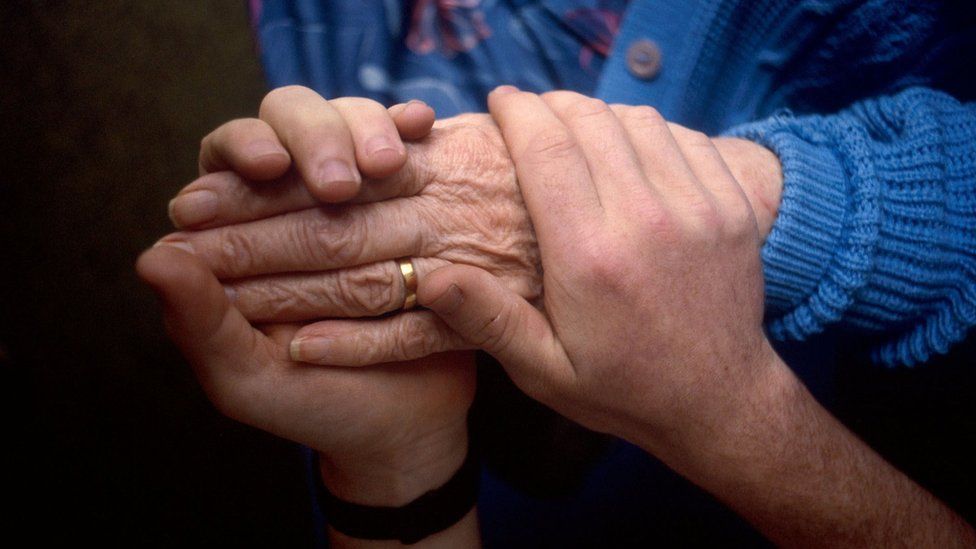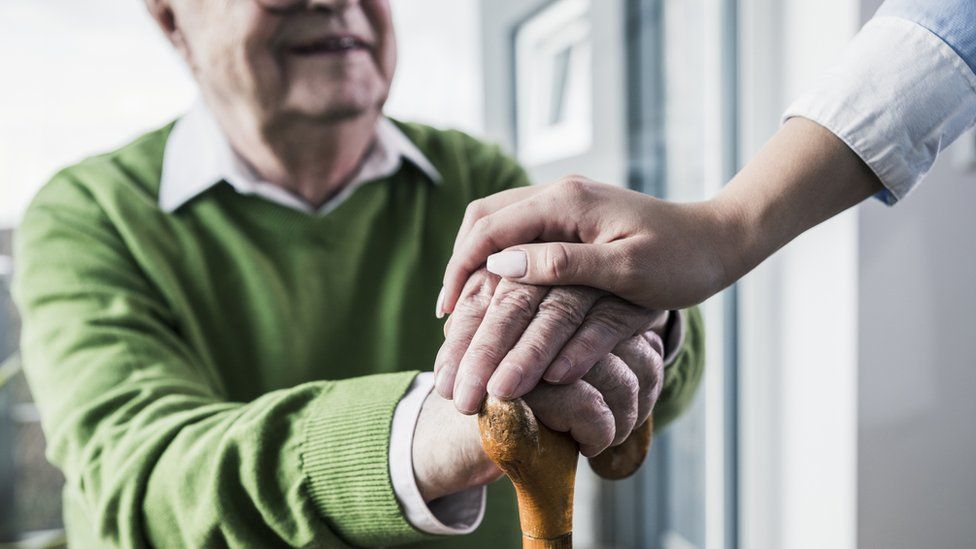
What would you do if your mother walked into traffic while you were at work?
This was the question posed to Zoe Wong from Bristol in a formal job interview.
She’s the primary carer for her mum, Stella, who has Alzheimer’s and is in remission from cancer.
“I was quite stunned,” Ms Wong says. “It made me feel like I now had less to give as an active member of the workforce, that I was worth less than other people and should be expecting to receive less.”
Her mum is just 66, yet the ravages of Alzheimer’s and cancer mean she can do very little for herself. This leaves Ms Wong doing a balancing act that one in worker in seven is engaged in – holding down a job while caring for a loved one.
Anxiety and graft
Ms Wong says: “Until you experience it as a person, you don’t necessarily understand the gravity of the role. It can be like trying to explain the colour purple to someone who can’t see.”
She’s part of an army of 13.6 million unpaid carers, who are thought to save the taxpayer £132bn a year by taking on duties that would otherwise fall to the state.
In the six years that she’s been part of that army, she’s had a mixed experience when it comes to employers.
Some bosses have understood the pressures she faces. But others have been less empathetic.
During one of her previous jobs, she only got about three hours’ sleep a night: “I fell asleep in a meeting, and I was pulled aside by my manager and he told me quite bluntly that he didn’t care about my personal circumstances – that I shouldn’t be bringing them to work.”
Other potential employers have suggested she write out a formal statement, outlining how she would balance work and her caring duties.
New rights
There have been times, Ms Wong says, that she simply couldn’t square the circle and had to leave her job.
She’s far from alone.
Before the pandemic took hold, it was estimated that 600 people a day were leaving their job because they couldn’t balance work with caring, at a cost of £1.7bn a year to the economy.
The government is seeking to address that by expanding the right to flexible working and allowing workers five days’ unpaid caring leave.
But what are companies doing about this? Insurance giant Aviva is among a growing number of firms taking action to make sure unpaid carers are cared for.
It gives its workforce up to 70 hours in paid carers’ leave and encourages managers to accommodate flexible working requests.

Anthony Fitzpatrick is head of employee relations at the group: “If you can relieve some of the stress points [for workers] , then they feel engaged, they feel motivated and it encourages them to do a great job.”
“And if they’re doing a great job, the benefit of that is to the customer, and that helps grow the business as well. So for me, there’s an absolute business case.”
He also points out that it helps retain experienced staff who might otherwise have to leave.
Rising demand
Mr Fitzpatrick thinks the pandemic has made it even more imperative that companies adopt more accommodating policies towards unpaid carers: “We’re starting to see an increase in people taking more registered time off for caring. That shows that the policy really is needed.”
We live with an ageing population – and that means more of us could end up taking on the care of elderly relatives.
Laura Bennett, policy chief of Carers Trust, says it is estimated that about three in five of us will become carers.
She’s also concerned about another source of increasing pressure on families. The deepening shortage of professional care staff has led the Care Quality Commission to warn that families face a “tsunami of unmet need” this winter.
“We believe that the answer to that is for the government to adequately fund social care,” Ms Bennett says.
She has reservations about the government’s pledge of £162.5m to boost the adult social care workforce on top of £5.4bn earmarked for social care: “It doesn’t seem clear how that funding will reach social care and then how it will reach carers.”

‘Dignity and joy’
Away from the high-level political and economic battle over the care economy, Zoe Wong’s everyday battle to balance her mother’s needs with her own life carries on: “My biggest hope for my mum is that she can live out her remaining days with dignity and joy.”
She also wants action to make her own life, and those of other unpaid carers, a lot easier.
“Just because we care for our families doesn’t mean we should be taken advantage of.
“Fix the system now, because the issue is only going to continue to worsen.”
